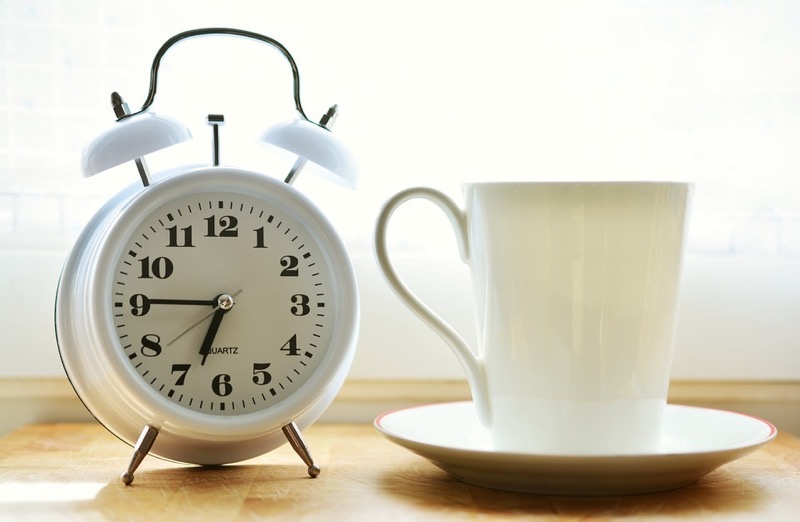Are you struggling to fix your sleep schedule? You are not alone. Many people need help with maintaining a consistent sleep schedule. Let’s talk about some proven ways you can apply to fix your sleep.
- First, schedule a regular bedtime and wake-up time to program your body’s internal clock.
- Secondly, create a nighttime routine such as reading or a warm bath to help relax your mind and body.
- Third, limit your exposure to electronic devices before bed, as the blue light emitted can hinder your ability to fall asleep.
- Fourth, avoid caffeine and alcohol before bedtime, as they can disrupt your sleep.
- Lastly, ensure your sleeping environment is comfortable, dark, and quiet. These methods have helped me fix my sleep schedule, and I guarantee they can help you too.
- These were some scientific name bases that can help you fix your sleeping schedule but these are generic and you will find them almost everywhere on the internet. So I will talk about my experience and how I was ever able to overcome my late-night sleeping habits.
Why Does a Sleep Routine Matter?

When you have a consistent sleep pattern, your body learns when it is time to fall and stay asleep, leading to better quality sleep.
A sleep routine involves:
- Preparing your mind and body for sleep, including establishing a regular bedtime.
- Avoiding screens for an hour before bed.
- Creating a comfortable sleep environment.
By maintaining a healthy sleep routine, you can get the sleep you need to feel rested and refreshed each day. A consistent sleep pattern can also improve mental and physical health, as sleep is crucial in supporting overall well-being.
How Can You Reset Your Sleep Schedule?

Set a consistent bedtime and wake-up time to reset your sleep schedule, and stick to it even on weekends. It can help regulate your circadian Rhythm (more on this later), making it easier for you to fall asleep at night and stay awake during the day.
Avoid pulling an all-nighter and napping during the day, as this can disrupt your sleep schedule. You will find some advice on the internet that says you can pull in an all-nighter to sleep on time the next day. But not only will it rain your entire day, but you will also again return to your missed sleeping routine in a day or two. From my personal experience, I can say that.
Also, he cannot follow your sleeping schedule from day one religiously. Consider that you will have to follow. You have to keep yourself motivated to fix your sleeping schedule.
Creating a relaxing bedtime routine can also help you wind down and prepare for sleep. Lastly, if you find it challenging to fall asleep within 20-30 minutes of going to bed, get out of bed, and do a relaxation activity until you feel drowsy. Adjusting your sleep routine may take time, but it is well worth it in the end for better sleep quality and overall health.
How Long Does it Take to Fix My Sleep Schedule?

Fixing your sleep schedule can take some time as it is gradual. You cannot expect to change your bedtime drastically in just one night. As I said, it is a process that requires patience and determination. You will have to get yourself in the habit of going to bed and waking up simultaneously every day.
Consistency is key when it comes to fixing your sleep schedule. You may have to adjust your lifestyle, such as limiting caffeine intake, avoiding electronics an hour before bedtime, and creating a relaxing bedtime routine. Remember, habit takes time to form, and if you stick to your way, you will eventually see results.
Getting your sleep schedule back on track may take a few weeks or even months, but the key is to be persistent and stay positive. It’s just that you will have to train your Circadian Rhythm.
What Is Circadian Rhythm?
Circadian Rhythm refers to the natural, internal process regulating the sleep-wake cycle of living organisms, including humans. The term originated from the Latin word “circa diem,” which means “around a day.”
This cycle is closely linked to the light-dark process of the environment and is regulated by a cluster of cells in the brain’s hypothalamus.
Disruption of this Rhythm can lead to various health problems, such as insomnia, depression, and even cancer. To regulate your circadian Rhythm, experts recommend sitting in sunlight for a few minutes every morning as it stimulates the natural production of hormones that help regulate the cycle.
At night, turning off the lights before sleeping is recommended to prepare your body to produce melatonin, a hormone that regulates the sleep-wake cycle. Keep your smartphone away or activating sleep mode that will dim the screen brightness, cut the blue lights and put the phone on silent.
Is Screen Time Before Bed Messing With Your Sleep?

Recent studies have shown that excessive screen time before bed can harm sleep. It messes up our Circadian Rhythm. Blue light emitted from screens, including phones, tablets, and televisions, can interfere with and trick our brain into thinking it is still daylight outside, disrupting our body clock and making it difficult to fall asleep.
It is recommended that individuals limit their screen time before bed to at least an hour, allowing the brain to reset and adjust to a sleep-friendly environment naturally.
Indeed, some of us cannot live without a smartphone, and we want it to be at our bedside just in case. But you will have to prioritize and choose between your sleep and some dopamine from browsing your Instagram feed. I have started to follow a rule where I keep my smartphone in the other room so that I don’t have the origin to check it, and I can spend some time by being mindful of how I spend my day and how I want to spend the next day. It cares about your mind.
Does Meditation Help Adjust Your Sleep?
Meditation is one of the best ways to reset your sleep cycle. Meditating before bed can calm your mind and body, promoting better sleep quality and helping reset your sleep schedule.
Additionally, meditation can help to lower stress levels, making it easier to fall asleep and stay asleep through the night. So if you’re struggling with a disrupted sleep cycle, consider incorporating meditation into your routine to reset your body clock and improve your overall sleep health.
Sleep Disorder Testing for Healthy Sleep
Suppose you have tried everything from changing your diet and exercise routine to cutting out caffeine and practicing relaxation techniques, and nothing seems to be helping. In that case, it may be time to consider sleep disorder testing.
Several tests can help diagnose a wide range of sleep disorders, including sleep apnea, insomnia, and restless leg syndrome.
These tests are often done in sleep medicine clinics and involve monitoring your sleep patterns, brain activity, breathing, and heart rate. If you suspect that you may be suffering from a sleep disorder, it is essential to consult with a doctor who can guide you through the testing process and help you get the treatment you need to improve your sleep and quality of life.
Can Pulling an all Nighter Reset your sleep Cycle?
Many people resort to pulling an all-nighter to fix their sleep schedule. While this may seem quick, it can do more harm than help.
The human brain needs proper rest to function optimally, and staying awake for an extended period can leave it exhausted and impaired. When we stay awake for too long, our cognitive abilities decline, and we become more prone to making mistakes and poor decisions.
Moreover, an all-nighter can disrupt our circadian Rhythm, making it harder for us to fall asleep at the right time in the future. Therefore, while it may be tempting to skip a night of sleep to regulate our sleep-wake cycle, it is not a sustainable solution and can have adverse effects on our health in the long term.
Make Setting a Consistent Sleep Schedule a Part of your Lifestyle
Some people are blessed to fix their sleeping schedule after partying hard on Friday, and they return to normal on Monday. For some people like me, we will have to struggle for weeks to get back to normal.
So there are some choices you will have to make. Some tough choices.
If you already wake up at 6:00 a.m. or 7:00 a.m. That could be a good routine for you. Getting up at 4:00 a.m. is not for everyone, and if you have struggled with it for a long time, it may not be for you.
I have followed all the things I mentioned in this article, and it has helped me immensely to fix my sleep cycle. I am still not a 4:00 a.m. guy, but it works for me to get up between 6 to 7 a.m. After a good 8 hours of sleep.

